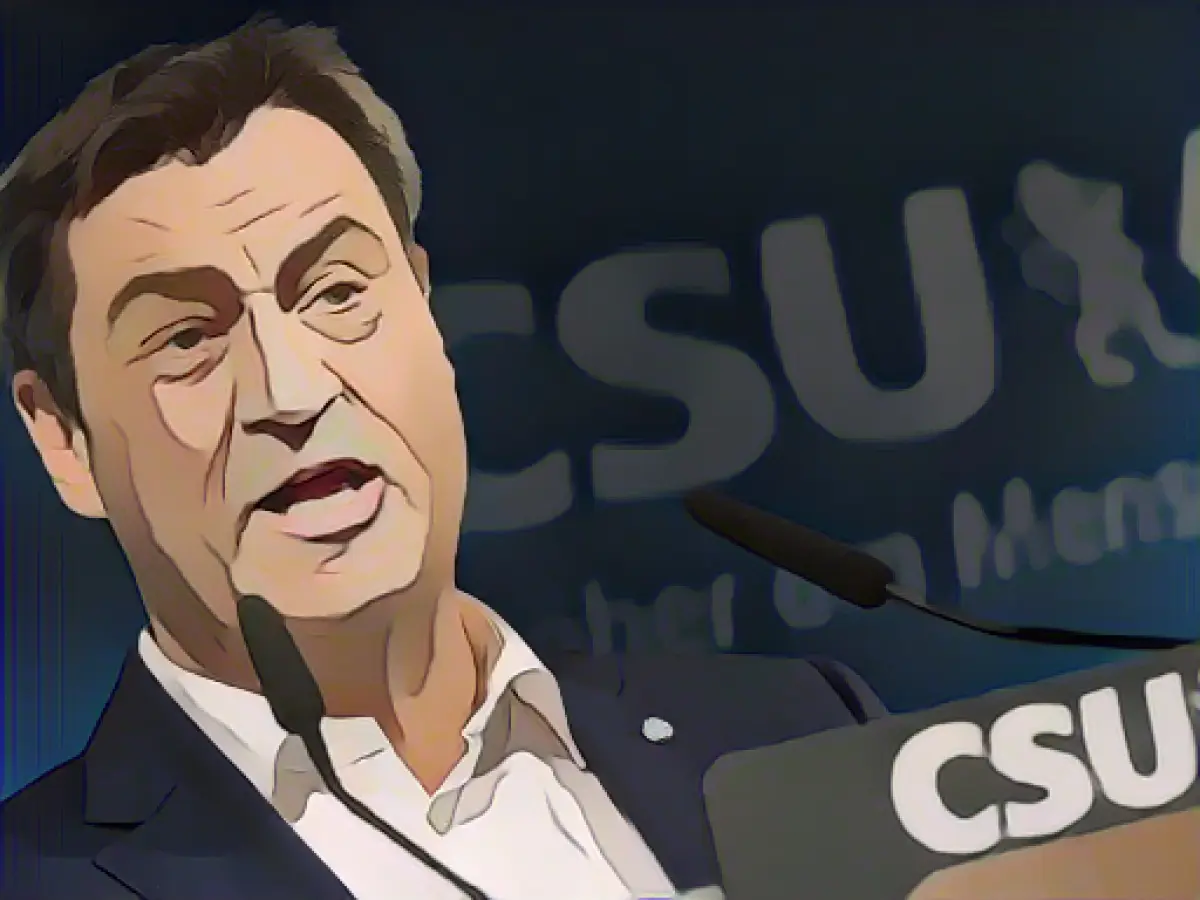Dr. Markus Söder, the CSU leader, urges Chancellor Olaf Scholz to be bold and straightforward in his negotiations with Turkish President Recep Tayyip Erdogan, aiming to reduce the influx of refugees into Europe. Söder emphasizes that any new agreement with Turkey should not be a hasty decision, but should prioritize German interests.
Germany, along with NATO and the EU, relies on Turkey's assistance in managing immigration. Scholz's discussions with Erdogan will likely revolve around revitalizing the EU-Turkey refugee agreement. Simultaneously, Scholz is anticipated to confront Erdogan on his stance towards Hamas in the ongoing Israel-Palestine conflict, as the Turkish leader diverges significantly from his NATO allies on this issue.
The CSU, under Söder's guidance, advocates for a tougher stance on migration, demanding a new Turkey deal that upholds German principles. However, this agreement should not be pursued at any cost. The upcoming meeting between Scholz and Erdogan offers a prime opportunity to explore potential avenues for strengthening economic and strategic ties while addressing regional conflicts.
Amidst international tensions, it is imperative for Scholz to express clear and firm views during his talks with Erdogan dynamics, as the CSU expects no compromise on their stance.
Source:
In conjunction with the aforementioned discussions, additional factors are expected to touch upon the following key topics:
- Migration and Refugee Policy: Potential changes to the EU-Turkey refugee agreement, including stricter interpretation or even renegotiation for more stringent immigration controls. This may impact the current visa liberalization agreement and financial support for Turkey.
- International Conflicts: Addressing disagreements between Germany and Turkey on regional policies, including controversial issues such as the Kurdish conflict, Syria, Libya, and the Eastern Mediterranean. Ankara's alignment with Russia and Iran may be of particular concern to Berlin.
- Economic and Strategic Cooperation: Enhancing the outlook for closer dialogue between Germany and Turkey on shared foreign policy interests. Germany has substantial bilateral political and economic ties with Turkey, which are recognized as crucial for tackling regional challenges.
- Syrian Conflict: Emphasizing the importance of revitalizing Syria's economic recovery and its reentry into the international political community. Germany, the EU, and Turkey are expected to work collaboratively towards this objective.
These elements may play a significant role in the discussions between Scholz and Erdogan, with the CSU advocating for their implementation to achieve a mutually beneficial agreement.








